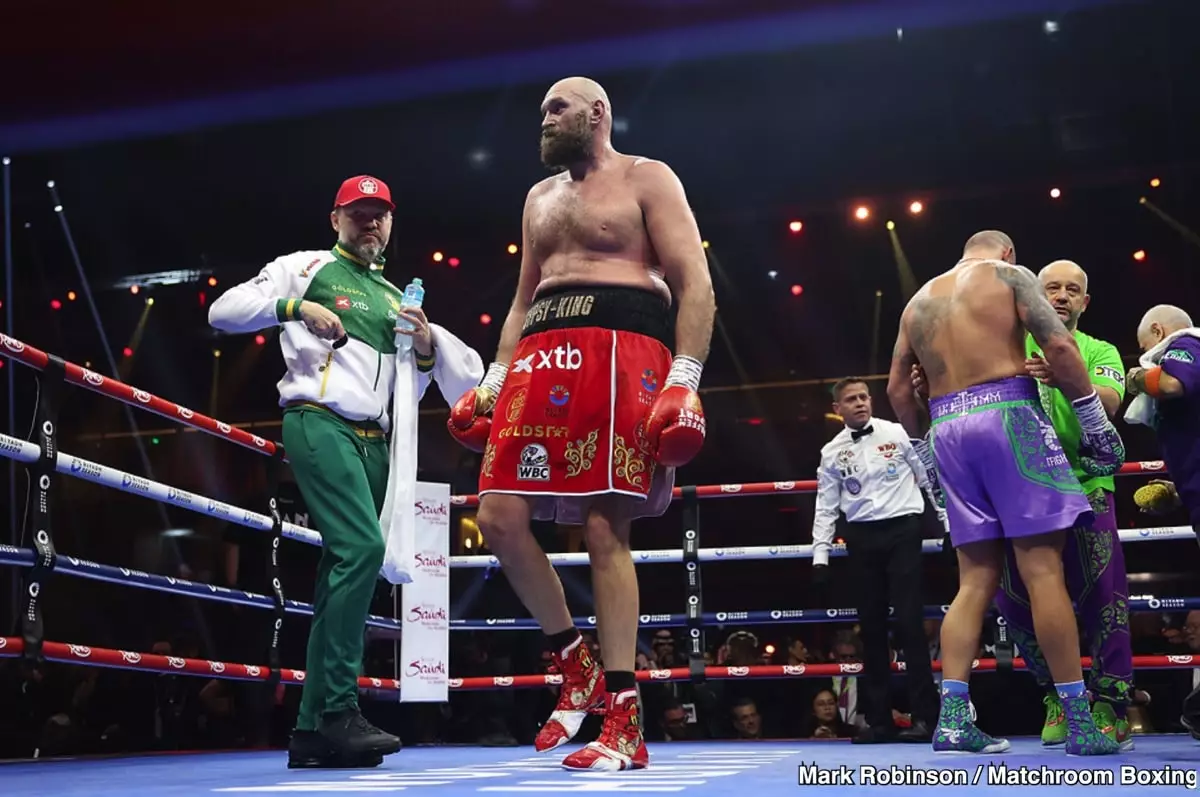Tyson Fury’s recent rematch against Oleksandr Usyk reflected much more than merely a clash of two heavyweight champions. It served as a dichotomy between self-perception and the cold, hard assessment of the fight’s outcomes. Following the bout, Fury expressed vehement disbelief regarding the judges’ decision, asserting that he should have emerged victorious by a significant margin. Despite the overwhelming evidence presented in the form of punch statistics—179 total punches landed by Usyk versus just 144 by Fury—the former champion clung firmly to his belief that the fight did not reflect his capabilities.
The unanimous decision rendered by the judges—each scoring the bout 116-112 in favor of Usyk—could be seen as a repudiation of Fury’s readiness and skill in the ring. His insistence that he was “never hurt” throughout the fight and had the superior game plan raises questions about his understanding of the match dynamics. Impressive defensive maneuvers and accurate striking from Usyk earned him the well-deserved victory, casting doubt on Fury’s claims. While Fury’s promoter, Frank Warren, acknowledged Usyk’s strength, defending Fury’s performance, there lurked an overwhelming sense of denial emanating from Fury himself.
Weight Issues: The Heavy Cost of Bulking Up
One of the more glaring issues that emerged from the fight analysis was Fury’s physical condition—the result of what seemed like a misguided attempt to increase his weight. At 281 pounds, he appeared sluggish, contrasting Uysk’s speed and evasion tactics. This misguided strategy, presumably aimed at outmuscling Usyk, rather than enhancing his agility, ultimately backfired. Fury’s previous success came at much lighter weights, and entering the ring significantly heavier only hindered his performance and adaptability against a nimble opponent.
This rematch unfolded a crucial lesson for both Fury and aspiring heavyweight contenders: size does not always equate to strength or superiority in the ring. Usyk’s strategy encompassed not just speed but also an astute understanding of how to exploit his opponent’s weaknesses. Fury’s apparent underestimation of Usyk’s prowess led him into a trap of his own making, a reminder that adaptability and technique often outweigh brute strength in boxing.
Fury’s declaration that Usyk’s victory was akin to receiving a “Christmas gift” from the judges only served to mask the bitter truth of the bout: Fury needs to reassess his approach, strategy, and possibly even his conditioning if he wishes to reclaim his title. While maintaining a fierce belief in one’s capabilities is essential, an honest evaluation of performance is equally crucial in the world of professional sports. Fury may need to reconcile his self-image with the reality unveiled by the judges and the hard data that underscored Usyk’s performance. The journey ahead for Fury will require not just physical resilience but also a more profound comprehension of the nature of competition in boxing.


Leave a Reply